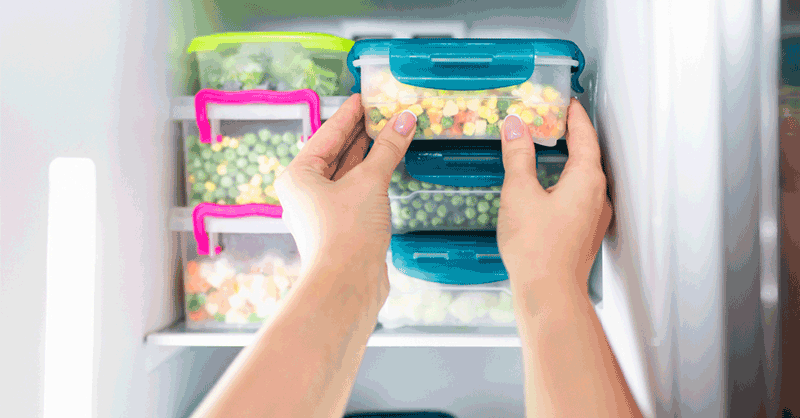Dairy products can be frozen better than any other food, but they can be stored only for six months or less.
Milk that is pasteurised and is in 1 ltr cartoon can directly be kept in the freezer. Milk tends to separate in layers. Thaw the milk and boil it before consuming. Pure milk should be boiled and slightly thickened. Then it should be cooled down to room temperature and separate into the container. When sealing the containers, make sure they are not full. Leave at least 2cm of the container empty. This is because when the liquid expands, they start to freeze. The container may explode if there is not enough space.
You can keep milk in the ice tray and use milk cubes directly for milkshakes or iced coffee without defrosting them. In addition, you can freeze yoghurt in small boxes at most for months. The flavour might vary slightly, but if you are using it to prepare dishes and have it with salads, you will not notice any changes. Stir the yoghurt well after defrosting it as the water comes apart.
Cheese crumbles down after freezing, which you can eat with salads. It’s also convenient to grate cheese like mozzarella and cheddar and keep them in suitable portions inside boxes. Thaw them slightly before using it as pizza toppings and or in cooking pasta.
You can store butter for more than four months in a plastic wrapper or aluminium foil. Do not refreeze unsalted butter. Salted butter can be thawed and used at your convenience.
Unwhipped creams are not very suitable for freezing. Whipped cream can be divided into small lumps and must be wrapped in wax paper.
Do not directly put eggs into the freezer. They might explode. You can crack them and freeze them in a muffin tin. Once frozen shift into another container if you want. You can also scramble the egg lightly with a spoon so that it doesn’t trap any air bubbles. Adding salt or sugar to the egg stops it from being too thick when it is defrosted.


![]() 17 minutes
17 minutes